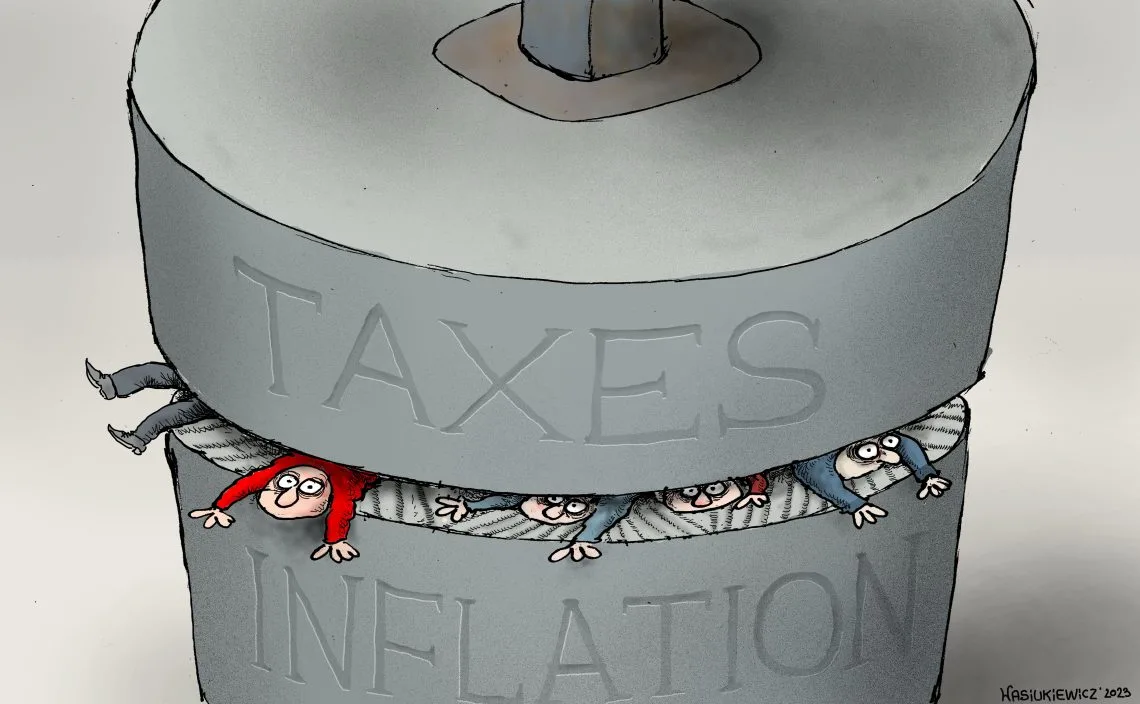Today’s irresponsible economic policies are repeating historical mistakes, risking catastrophic consequences similar to those experienced in the past.

In November 1923, a century ago, Germany’s post-war inflation reached its peak. One kilogram of rye bread was priced at 223 billion marks, and beef prices had soared past the trillion mark.
Post-war Germany was facing exorbitant reparation demands imposed by the Treaty of Versailles – less a peace treaty than a vengeful arrangement dictated by the victors, intended to perpetually weaken the German state. Ironically, it set the stage for the rise of the Nazis and the subsequent outbreak of World War II.
Lessons from Germany’s past
The already fragile German government had to contend not only with war debts but also with these inflated reparation demands. By 1922, Germany could no longer adhere to the reparation schedule. Consequently, France and Belgium invaded and occupied Germany’s crucial industrial Rhine-Ruhr region. The German government’s only form of protest was to endorse passive resistance and ensure payment to striking workers. To pay these wages, along with the ongoing reparation payments, Germany had to print money, triggering a tsunami of inflation.
The extreme situation necessitated a total monetary reform and a restructuring of reparation payments. Unlike Great Britain and France, the United States was notably supportive, and through the Dawes Plan Germany achieved stabilization. However, this came at a cost: all Germans lost their savings.
This scenario exemplifies the severe consequences of government overspending. In Germany’s defense, it must be acknowledged that the government was dealing with an unprecedented situation, and the overspending was largely imposed externally.
Yet, this extreme case serves as a stark warning for contemporary times. Today, many governments engage in voluntary overspending, often underpinning their actions with frameworks like Modern Monetary Theory, while disregarding mathematical realities. Despite warnings, institutions like the European Central Bank overlooked the looming threat of inflation. Unforeseen events, such as Covid-19 and war, have transformed what was once only inflation in asset values into a broader inflationary trend affecting the general economy. While inflation may not be rampant, it still erodes purchasing power. It is critical to remember that inflation is cumulative: a three percent inflation rate this year adds to the inflation rates of previous years, continuously affecting the economy and especially the purchasing power of society.
A cautionary tale for modern economies
With soaring government debts and ongoing deficits, institutions like the ECB are hesitant to sufficiently raise interest rates to combat inflation. Such a move could increase the cost of debt and potentially hinder the already very modest growth rates.
We find ourselves in what can be described as an inflationary trap. This predicament might be concealed temporarily, but persistent and excessive government overspending lays the foundation for further inflation. New fiscal stimuli and squandering are often packaged attractively, as seen in the U.S. with the ironically named Inflation Reduction Act, or in Germany with the term Sondervermogen, or special assets. (Labeling additional debt as “special assets” is a misnomer, to say the least.)
The current minor decrease in inflation should not be a source of complacency. Tightening measures, particularly in the U.S., are having an impact. However, it is important to recognize that inflation persists, and the current reduction is largely due to falling energy prices and eased trade tensions. It is unsettling that wage-price spirals have emerged in several European countries.
In response to these challenges, populist rhetoric often identifies inequality as a culprit, leading to calls for wealth redistribution and slogans like “make the rich pay.” Such approaches, however, will exacerbate the situation by setting the wrong economic incentives.
Tax systems are becoming increasingly byzantine, leading to arbitrary and unpredictable tax collection and enforcement. This complexity results in a significant tax burden.
Inflation, high debt levels and excessive taxation are deeply interconnected. Deficit spending typically fuels inflation. Both inflation and debt ultimately strain citizens and are indicative of weak and irresponsible governance.
In today’s world, there are no valid excuses for such self-destructive policies. One is reminded of Lenin’s assertion that the best way to achieve the dictatorship of the proletariat is to crush the bourgeoisie between the millstones of inflation and taxation.

